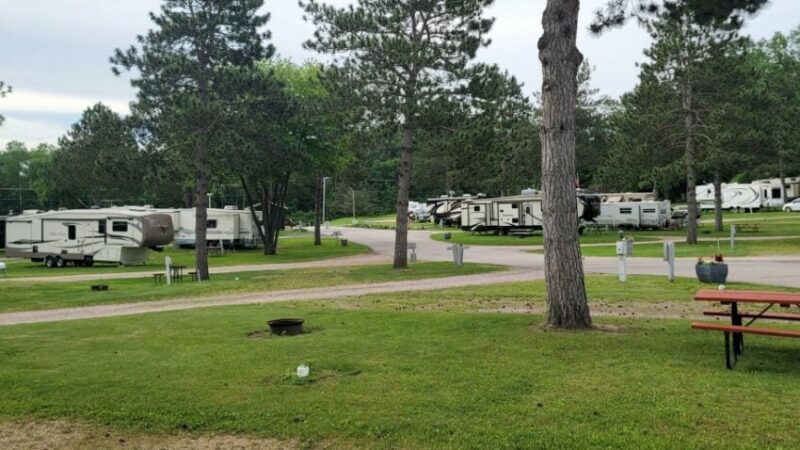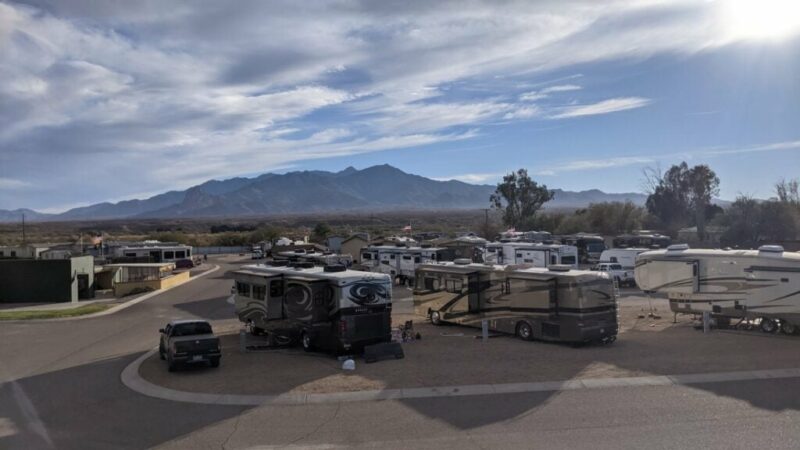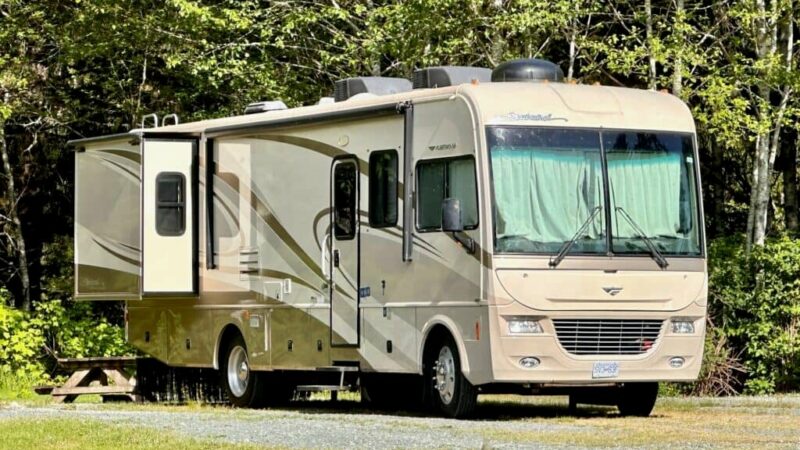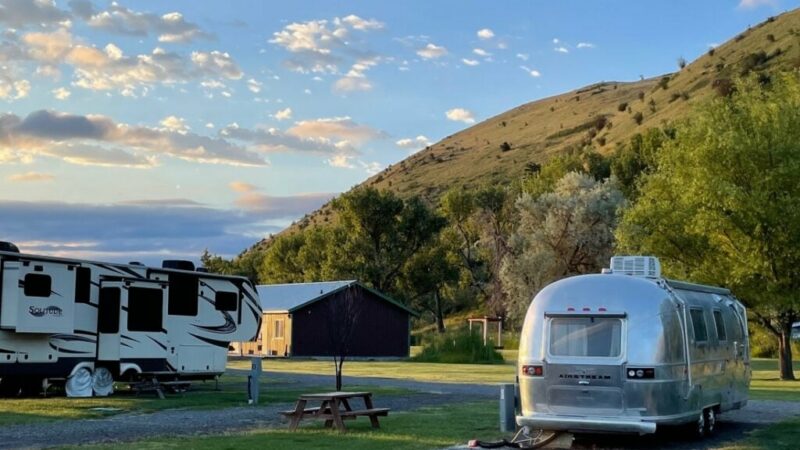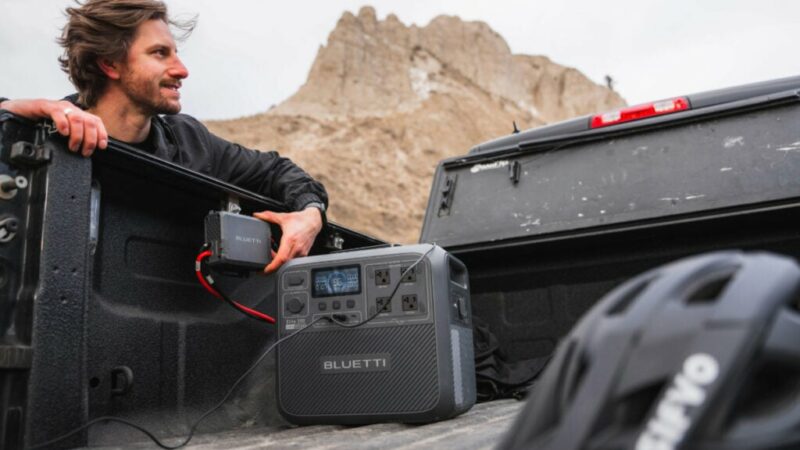8 Tips for Camping in the Mountains
Camping in the mountains is a fantastic adventure that you should absolutely take. From way up high, you’ll be able to access amazing hiking trails, play in mountain streams, and see some animals that don’t tend to make their way down to the bigger human civilizations.
All that said, there are some things you need to keep in mind in order to be properly prepared for camping in the mountains. Here we share our top mountain camping tips so you can go in ready for whatever the mountains may throw your way.
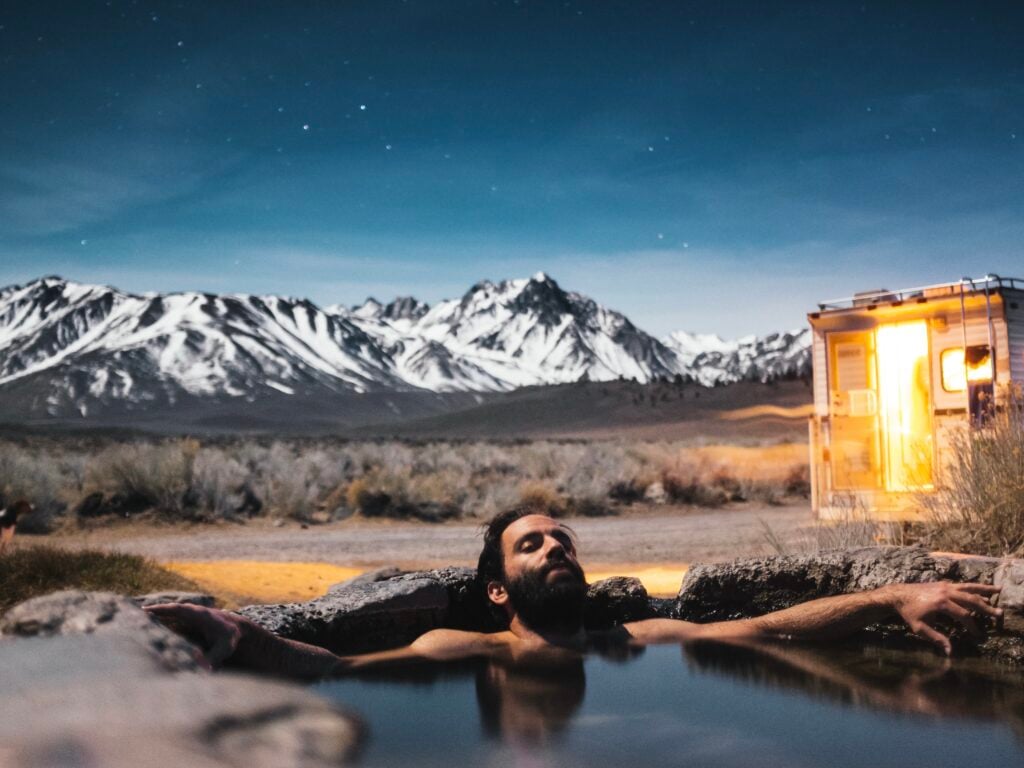
Find a Great Site
First, you’ll want to find an awesome campsite. Depending on where you’re planning to have your mountain camping adventure, you’ll likely find that there are a number of options available, from primitive dispersed campsites to full-fledged RV parks.
Our top pick for camping in the mountains? Forest Service campsites. If camping in a national forest is a possibility, this is what we recommend doing. You can either find an established campground run by the forest service or choose to head out into one of the dispersed camping areas. Check out RV LIFE Campgrounds to see some great options.
Either way, you’ll be treated to gorgeous scenery and very low (or even no) camping fees.
Download a Map
If you’re heading into a national forest (or even just into the mountains, really) you are very likely headed into a very remote area. This is awesome for camping because it means little noise, incredible night skies, and likely more wildlife. That said, it also tends to mean little to no cell signal.
For this reason, we highly recommend downloading your directions or map onto your GPS before you leave home. The RV LIFE app is perfect for this and will easily guide you to your campsite whether or not you have cell service.
Know How to Drive in Mountains
Driving in the mountains can be tricky business, especially in a large vehicle like an RV. For this reason, it’s a good idea to do a bit of studying before you leave home to ensure you know how to handle the steep grades in your rig.
Account for Altitude Sickness
Attitude sickness is, unfortunately, a very real thing. Not everyone will be affected by it, but if you haven’t spent time at high altitudes in the past and you aren’t sure whether you will get sick or not, it’s best to prepare for the worst and hope for the best.
Our best advice is to avoid planning anything for the first day or two of your trip in order to give your body time to adjust. It’s also a good idea to pack plenty of ibuprofen or acetaminophen—as well as anti-nausea meds—to take as needed.
If you do end up with altitude sickness, be sure to stay well hydrated (see below) and get lots of rest until you recover.
Drink Lots of Water
That leads us to our next tip: Stay hydrated. This one is super important so be sure you remember it, even when you’re out hiking and having a grand old time.
You see, it’s a lot easier to become dehydrated when at high altitudes. This truth, combined with the fact that you’ll likely be having fun and distracted from drinking water, could be a recipe for disaster. Add in the fact that you might have limited access to water and the problem could easily get even more out of hand.
Pack plenty of water (especially if you’ll be dry camping), carry water bottles everywhere, and put a jug of water or two in the tow vehicle or dinghy for refills.
Prepare for Low Oxygen Levels
Altitude sickness and dehydration aren’t the only weird things that happen when high in the mountains; there’s also a lot less oxygen up there. What does this mean for you? Well, it means that you’ll probably have a harder time breathing and might find yourself panting after only mild activity. You might also experience dizzy spells if you push yourself too hard.
This is just another reason to lay low for the first couple of days of your trip. Avoid taking strenuous hikes or bike rides during this time, and instead spend the time relaxing at your campsite and soaking up the beauty of the area. This will give your body time to adjust so that breathing is a bit easier.
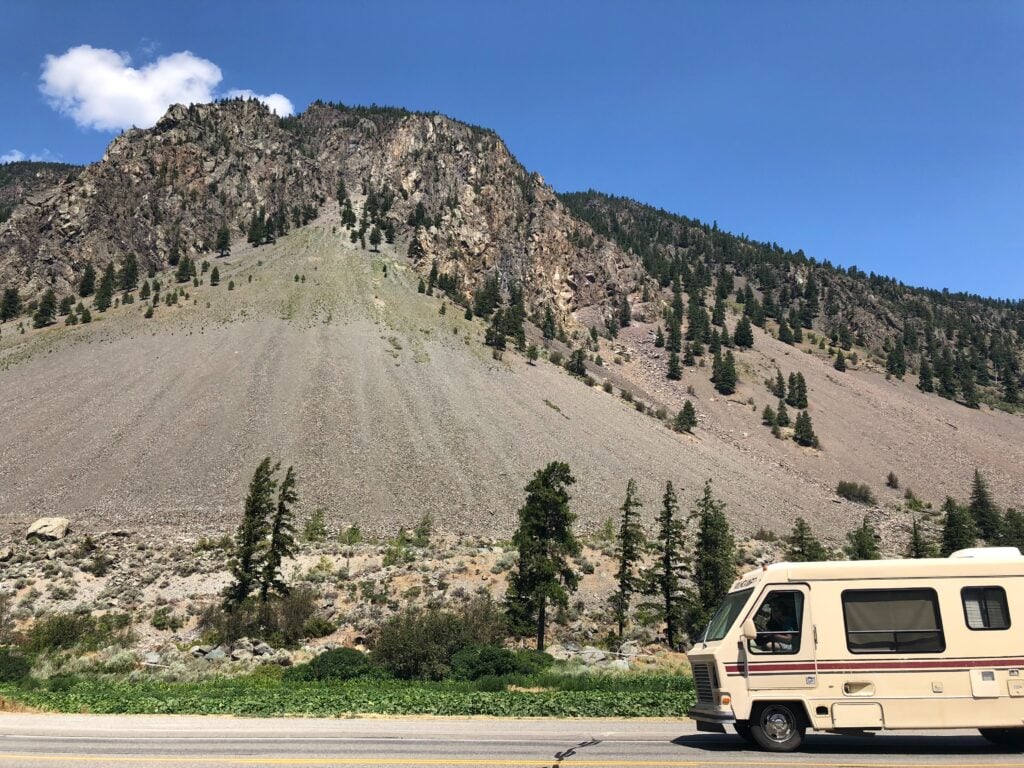
Don’t Count on Propane
Those low oxygen levels don’t just affect us humans. You might also find that your propane appliances have difficulty working properly in the mountains. This is because those propane flames need oxygen to keep going, and there isn’t always enough to go around up there. This can be an especially big problem if you are boondocking and counting on a propane fridge and stovetop.
The best way to solve this problem? Have a backup plan. A high-quality cooler will keep your food cold just as well as a propane fridge, and it doesn’t require oxygen to run. As far as cooking goes, consider packing an electric appliance if you have a way to run it while off-grid. Otherwise, you can always use the campfire.
Note: Campfires may also have a hard time lighting, especially if you’re using a lighter, which may or may not work. However, if you use matches, a starter log, and a lot of patience, you should be able to get a decent flame going.
Adjust the Generator
Last but not least, we must mention your RV’s generator. If you have an RV generator that you plan on using while camping in the mountains, you will need to adjust it to work at elevation. Fortunately, this is easy enough to do.
Most generators have a small knob that can be turned to the correct elevation. Do this before trying to start the genny, and as long as you aren’t higher up than the highest setting allows, it should run for the duration of your trip without issue, even if you are in the mountains.
There you have it, our top tips for camping in the mountains. Use these the next time you head to high elevations and have an amazing time exploring!
The post 8 Tips for Camping in the Mountains appeared first on RV LIFE.
Source: https://rvlife.com/tips-for-camping-in-the-mountains/

